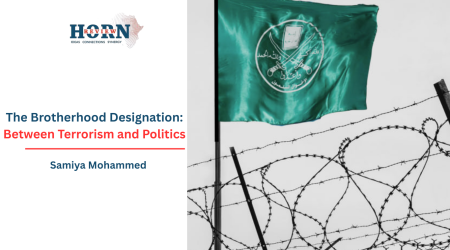
12
May
Are We Witnessing a Shake-Up in US–Egypt Relations?
The past hundred days of Trump’s administration have revealed a growing rift between Cairo and Washington over the future of Gaza and free passage of the U.S. in the Suez Canal. Trump has actively pressured both Egypt and Jordan to accept displaced Palestinians from Gaza, a proposal that has been robustly rejected by both countries.
Egypt’s opposition has been particularly firm, with the government developing its own Gaza reconstruction plan specifically designed to counter Trump’s approach. The Arab League amplified Egypt’s position, condemning the proposal as ethnic cleansing, while Hamas vowed resistance. Egypt, sensitive to regional sentiment, does not want to be seen as undermining the Palestinian cause and considers any such relocation a red line, marking the beginning of the U.S.-Egypt friction.
Tensions escalated further when Israeli forces seized the town of Rafah in Gaza. The United States, siding with Israel, accused Egypt of negligence in policing its border. This accusation simmered within Egypt’s political circles and reinforced the perception of U.S. disregard for Egyptian sovereignty. In response, Egypt reaffirmed its position and sought to assert its role as a regional power. However, Cairo’s traditional role as a mediator between the West, Israel, and the Arab world is now facing renewed challenges. Other mediators, like Qatar, have emerged, threatening Egypt’s regional diplomatic relevance.
In a move that has further inflamed tensions, Trump demanded free passage for U.S. vessels through the Suez Canal linking the canal’s lifeline with the U.S.’s strategic interests. This demand appears aimed at offsetting U.S. costs in countering Houthi threats to Red Sea shipping, especially after canal revenues fell by 60% in 2024 due to intensified Houthi attacks. This demand provoked outrage among the Egyptian public. Behind closed doors, Trump linked canal access to Egyptian military support against Yemen’s Houthis during an April call with President Sisi. Sisi deflected, arguing a Gaza ceasefire would better address Red Sea security, a rebuke of Trump’s transactional approach. This exchange demonstrates Egypt’s refusal to subordinate its strategic interests to U.S. priorities.
Trump’s call for Sisi to support the U.S. bombing campaign against the Houthis is not the first time Egypt has had to resist appeals to become involved in Yemen. Egypt was one of the first countries to exit a Saudi-led coalition that was bombing the Houthis in 2016. If Egypt were to reconsider and agree to participate in U.S.-led action against the Houthis, it might help repair their strained relationship. Nonetheless, if it joins, it risks repeating a history of interventions prior to 2016 that exacted tremendous human and financial costs, but might rethink limited engagement. However, Egypt’s consistent resistance suggests a deeper divergence in strategic priorities.
The consequences of this growing disagreement are increasingly serious. The U.S. notification to Egypt of impending military aid reductions starting in 2026 seems to be a retaliatory move by Trump for Egypt’s refusal to support the Gaza proposal. This clash has revealed diverging priorities: Egypt is focused on Palestinian sovereignty, while Trump favors a transactional approach involving displacement and coercive leverage. This friction threatens to erode the foundational principles of their defense cooperation, established during the 1979 Camp David Accords.
In response to these mounting tensions, Egypt has stepped up efforts to diversify its military partnerships and reduce dependency on the United States, which currently supplies 80% of Egypt’s major arms imports. The recent Egypt and China joint air force exercise marks a significant development and geopolitical shift as Egypt’s military capability is heavily dependent on the U.S. Furthermore, Egypt is not limiting its diversification to China; recently, the Russian and Egyptian navies conducted joint combat exercises in the Mediterranean Sea. These collaborations signal Cairo’s intent to create strategic autonomy in military affairs, expanding ties apart from its traditional military ally, the U.S.
Egypt’s geopolitical reorientation is not confined to the defense sector. The country’s accession to BRICS and deepening economic partnership with China present an alternative to American economic influence. This shift could reduce U.S. leverage over Egyptian policy decisions and disrupt the long-standing strategic alliance. China’s growing influence in Egypt and potential financial backing from Gulf States that maintain strong ties with President Sisi further contribute to this realignment.
Given this evolving landscape, several potential trajectories for U.S.-Egypt relations could emerge. The most likely scenario is a gradual downgrade from a strategic alliance to a limited partnership. With Chinese investments offsetting potential U.S. aid cuts, Cairo may tolerate reduced U.S. engagement while maintaining intelligence cooperation on counterterrorism. As this relation gets intense, Ethiopia could step into the breach diplomatically. This shift could leave Addis Ababa freer to press ahead with dam operations even though it is on the stage of completion. This indicates a sign of erosion in Cairo’s long standing diplomatic leverage in Washington. This shift can also subtly reinforce Ethiopia’s confidence that Egypt’s ability to rally American pressure on the GERD issue had diminished.
A second trajectory, though less probable, involves a sharper break. If Trump intensifies demands and cuts aid, surging nationalist sentiment over Gaza and the Suez Canal could push Egypt to risk expelling U.S. naval forces. This would mark a decisive break in military coordination having a knock-on effects across the Horn.
A third, and also less likely scenario, envisions a pragmatic détente. Washington could acknowledge Egypt’s multipolar orientation and interpret its BRICS membership as economic pragmatism rather than anti-Western defiance. Under this framework, the U.S. and Egypt might find common ground on Gaza reconstruction and Red Sea security. However, Trump’s transactional style and Sisi’s emphasis on sovereignty make such a reconciliation difficult.
Ultimately, Egypt may be engaging in tactical maneuvering, deepening ties with China and Russia not to replace the U.S. entirely, but to gain leverage in negotiations. These strategic signals aim to inform Washington that Egypt has viable alternatives, thereby enhancing its bargaining position. However, should this relationship come under further strain, it can directly affect Egypt’s expanding influence in the Horn of Africa.
By Yonas Yizezew,Researcher,Horn Review










